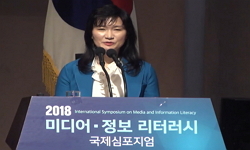Democratic civic education may be said to be a form of the necessary political education in that it provides for stability, efficiency and integration of political system as well as proper solutions to the expected problems after unification. But it h...
http://chineseinput.net/에서 pinyin(병음)방식으로 중국어를 변환할 수 있습니다.
변환된 중국어를 복사하여 사용하시면 됩니다.
- 中文 을 입력하시려면 zhongwen을 입력하시고 space를누르시면됩니다.
- 北京 을 입력하시려면 beijing을 입력하시고 space를 누르시면 됩니다.
https://www.riss.kr/link?id=A99769412
- 저자
- 발행기관
- 학술지명
- 권호사항
-
발행연도
2012
-
작성언어
-
- 주제어
-
KDC
300
-
자료형태
학술저널
-
수록면
71-92(22쪽)
- 제공처
-
0
상세조회 -
0
다운로드
부가정보
다국어 초록 (Multilingual Abstract)
Democratic civic education may be said to be a form of the necessary political education in that it provides for stability, efficiency and integration of political system as well as proper solutions to the expected problems after unification. But it has not received the sufficient attention by the scholars and experts and exposed such problems as disagreement on the contents of democratic civic education, the use of it as the instrument of government, lack of attention and cognition about it, the inadequacies of institutions. This article is meant to suggest the democratic civic education in the new direction by analyzing these problems systematically. New principles of democratic civic education i. e. universality, speciality, spontaneity and learning of self-study are suggested. The changes in individual identity and citizenship that may appear in the horizontal relations in the information society should be added to the preexisting contents of democratic civic education, which would bring about their adjustment or change in some parts. The Law for Democratic Civic Education and Center for Democratic Civic Education may be considered as the absolutely necessary institutions for the successful implementation of democratic civic education.
동일학술지(권/호) 다른 논문
-
Rolle der politischen Stiftungen: Beispiel der Konrad-Adenauer-Stiftung
- 한국민주시민교육학회
- ( Eckhard Ruminski )
- 2012
-
- 한국민주시민교육학회
- ( Eckhard Ruminski )
- 2012
-
- 한국민주시민교육학회
- 신두철 ( Du Chel Shin )
- 2012
-
- 한국민주시민교육학회
- 신형식 ( Hyung Sik Shin )
- 2012




 KISS
KISS




